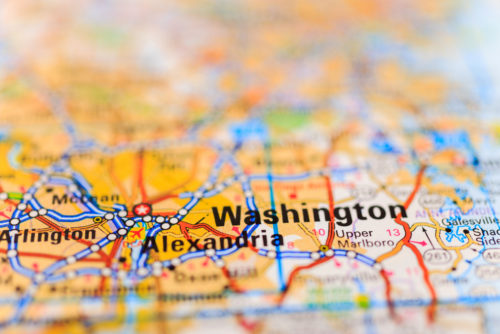 Commercial food preparation areas require strict management of equipment and surface cleaning. One of the areas that foodservice staff commonly overlook when scheduling cleanings is the kitchen hood. Kitchen hoods and stove exhaust systems help keep the air clean and smoke-free by actively pulling hot air, odors, smoke, and grease- or oil-containing vapors up into the hood, passing it through system filters and out of a building through an external exhaust fan.
Commercial food preparation areas require strict management of equipment and surface cleaning. One of the areas that foodservice staff commonly overlook when scheduling cleanings is the kitchen hood. Kitchen hoods and stove exhaust systems help keep the air clean and smoke-free by actively pulling hot air, odors, smoke, and grease- or oil-containing vapors up into the hood, passing it through system filters and out of a building through an external exhaust fan.
Over time, a resulting residue of fat, oil, and grease (FOG) develops in the hood or exhaust system that is not only a sanitary concern but one that can lead to a disastrous situation if the flammable residue catches fire. Since 1973, Interior Maintenance Company, Inc. (IMC) has developed a reputation in Washington, D.C. as a leading facility maintenance company, with over two decades of specialization in kitchen hood cleaning. IMC can help your kitchen adhere to food preparation, fire safety, environmental, and commercial space regulations for healthy and compliant kitchen hood and exhaust system maintenance. Read on to learn more about why and when to clean your kitchen hood, and how the team at IMC can help.
Why You Should Regularly Schedule a Hood Cleaning
Having your kitchen hood cleaned is no different than the numerous other sanitary tasks that foodservice staff must remember to complete on countertops, equipment, and more. Setting up regular kitchen hood cleanings will help with:
- Fire prevention. The buildup of grease can cause flash fires, which water cannot extinguish. These fires tend to spread quickly and cause a lot of damage, particularly if the roof catches and the fire jumps to other neighboring structures. At best, you’re looking at exhaust system component replacement. At worst, you might be facing legal fees and a razed structure.
- Employee health improvement. Kitchens already tend to be hot environments, and unclean kitchen hoods only exacerbate this problem. If your employees are complaining about stuffy air and offensive smells, the kitchen hood may need to be cleaned to help ensure your employees aren’t breathing in harmful fumes that could result in health issues and staff absences.
- Structural damage prevention. Exhaust that is drawn into your kitchen hood is routed outside, usually to the rooftop. If you do not have adequate rooftop grease containment systems to capture and hold the grease in the fumes, you could be risking your roof. Grease can collect on top of the roof and cause damage like softening, cracking, swelling, and sponginess. All of these can lead to leaks and repair bills.
- Industry-standard compliance. Improper ventilation or dirty kitchen hoods and exhaust systems can lead to serious health department violations, sanitation issues, and environmental impacts that can result in cleaning fees, hefty fines, or even facility closures, which equate to lost revenue. Shutdowns for health inspection violations will also damage an establishment’s reputation.
Which Types of Establishments Need Kitchen Exhaust Cleaning?
Restaurant hood cleaning is an obvious necessity. However, a broad spectrum of businesses contain kitchen facilities, and any kitchen with a system installed for grease exhaust requires periodic hood maintenance. The following are some other facilities bound by the National Fire Protection Association (NFPA) 96 code:
- Cafeterias in locations like schools or prisons
- Convenience stores selling consumable goods prepared on-site
- Churches or centers providing community services
- Healthcare facilities like hospitals and nursing homes
- Hotels offering room service, daily breakfasts, or in-house restaurants
How Often Does Commercial Hood Cleaning Need to Be Done?
NFPA 96-11.4 mandates that restaurants contract with certified, trained technicians to regularly inspect and clean kitchen hoods and exhaust systems. However, what constitutes “regular” cleanings? The frequency of scheduled cleans relies heavily on the type of food a kitchen produces and how often the facility is in use. The code requires the following frequency:
- Once a month. Fastfood restaurants that serve high volumes of greasy foods like hamburgers need a cleaning each month. The same is true for kitchens that utilize solid fuels in things like wood-burning ovens and charbroiling.
- Every three months. Kitchens that operate 24 hours a day or those that use wok or charbroiling cooking frequently require quarterly cleanings.
- Every six months. Restaurants and kitchens with average kitchen hood and exhaust system use typically only require cleanings semiannually.
- Once a year. Facilities like churches, youth centers, and seasonal businesses are often lower-volume cooking operations, and so they often only need annual cleanings.
Please note that if you notice that your kitchen hood is not functioning optimally, it may need cleaning sooner.
Commercial Hood Cleaning in Washington, D.C. by Interior Maintenance Company
IMC can help make kitchen hood cleanings less stressful with efficient, fast, and affordable service. Our company also partners with numerous trusted affiliates from air quality consultants to filter manufacturers and mechanical contractors to offer a broader range of services. Contact IMC today to set up a cleaning or request a quote for your facility.
